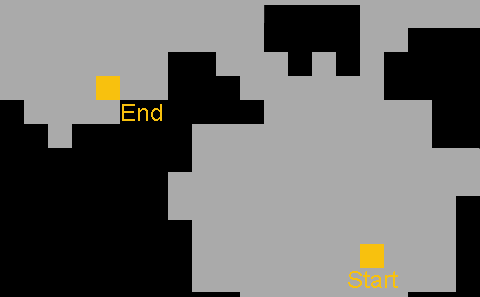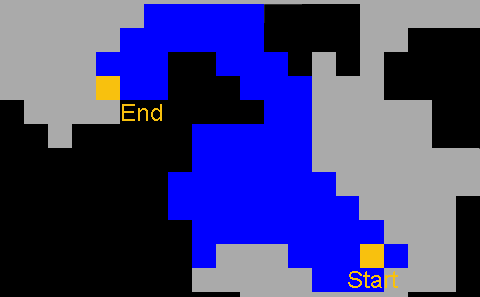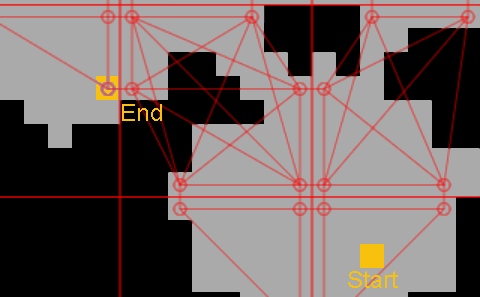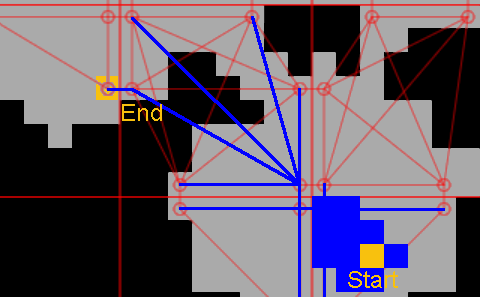1
2
3
4
5
6
7
8
9
10
11
12
13
14
15
16
17
18
19
20
21
22
23
24
25
26
27
28
29
30
31
32
33
34
35
36
37
38
39
40
41
42
43
44
45
46
47
48
49
50
51
52
53
54
55
56
57
58
59
60
61
62
63
64
65
66
67
68
69
70
71
72
73
74
75
76
77
78
79
80
81
82
83
84
85
86
87
88
89
90
91
92
93
94
95
96
97
98
99
100
101
102
103
104
105
106
107
108
109
110
111
112
113
114
115
116
117
118
119
120
121
122
123
124
125
126
127
128
129
130
131
132
133
134
135
136
137
138
139
140
141
142
143
144
145
146
147
148
149
150
151
152
153
154
155
156
157
158
159
160
161
162
163
164
165
166
167
168
169
170
171
172
173
174
175
176
177
178
179
180
181
182
183
184
185
186
187
188
189
190
191
192
193
194
195
196
197
198
199
200
201
202
203
204
205
206
207
208
209
210
211
212
213
214
215
216
217
218
219
220
221
222
223
224
225
226
227
228
229
230
231
232
233
234
235
236
237
238
239
240
241
242
243
244
245
246
247
248
249
250
251
252
253
254
255
256
257
258
259
260
261
262
263
264
265
266
267
268
269
270
271
272
273
274
275
276
277
278
279
280
281
282
283
284
285
286
287
288
289
290
291
292
293
294
295
296
297
298
299
300
301
302
303
304
305
306
307
308
309
310
311
312
313
314
315
316
317
318
319
320
321
322
323
324
325
326
327
328
329
330
331
332
333
334
335
336
337
338
339
340
341
342
343
344
345
346
347
348
349
350
351
352
353
354
355
356
357
358
359
360
361
362
363
364
365
366
367
368
369
370
371
372
373
374
375
376
377
378
379
380
381
382
383
384
385
386
387
388
389
390
391
392
393
394
395
396
397
398
399
400
401
402
403
404
405
406
407
408
409
410
411
412
413
414
415
416
417
418
419
420
421
422
423
424
425
426
427
428
429
430
431
432
433
434
435
436
437
438
439
440
441
442
443
444
445
446
447
448
449
450
451
452
453
//! A crate to quickly approximate Paths on a Grid.
//!
//! # Use Case
//!
//! Finding Paths on a Grid is an expensive Operation. Consider the following Setup:
//!
//! 
//!
//! In order to calculate a Path from Start to End using regular A*, it is necessary to check a
//! lot of Tiles:
//!
//! 
//!
//! (This is simply a small example, longer Paths require a quadratic increase in Tile checks,
//! and unreachable Goals require the check of _**every single**_ Tile)
//!
//! The Solution that Hierarchical Pathfinding provides is to divide the Grid into Chunks and
//! cache the Paths between Chunk entrances as a Graph of Nodes:
//!
//! 
//!
//! This allows Paths to be generated by connecting the Start and End to the Nodes within the
//! Chunk and using the Graph for the rest:
//!
//! 
//!
//! Since the Graph is not an exact representation of the Grid, **the resulting Paths will
//! be slightly worse than the actual best Path** (unless [`config.perfect_paths`](PathCacheConfig::perfect_paths)
//! is set to `true`). This is usually not a problem, since the purpose of Hierarchical Pathfinding
//! is to quickly find the next direction to go in or a Heuristic for the Cost and existence
//! of a Path.
//!
//! The only time where the actual best Path would noticeably differ is in the case of short Paths.
//! That is why this crate calls the regular A* search after HPA* confirmed the length and
//! existence. (This behavior can be turned of using the Config).
//!
//! This crate provides an implementation of a Hierarchical Pathfinding Algorithm for any generic Grid.
//! Paths can be searched using either A* for a Path to a single Tile, or Dijkstra for searching
//! multiple Targets. It handles solid walls in the Grid and actually finding a Path to a wall.
//!
//! # Examples
//! ##### Creating the Cache
//! First is the Grid itself. **How it is stored doesn't matter**, but lookup has to be fast.
//!
//! For this example, we shall use a 2D-Array:
//! ```ignore
//! // 0 = empty, 1 = swamp, 2 = wall
//! let mut grid = [
//! [0, 2, 0, 0, 0],
//! [0, 2, 2, 2, 0],
//! [0, 1, 0, 0, 0],
//! [0, 1, 0, 2, 0],
//! [0, 0, 0, 2, 0],
//! ];
//! let (width, height) = (grid.len(), grid[0].len());
//!
//! let cost_map = [
//! 1, // empty
//! 10, // swamp
//! -1, // wall = solid
//! ];
//! ```
//! Now for creating the [`PathCache`]:
//! ```
//! # let mut grid = [
//! # [0, 2, 0, 0, 0],
//! # [0, 2, 2, 2, 0],
//! # [0, 1, 0, 0, 0],
//! # [0, 1, 0, 2, 0],
//! # [0, 0, 0, 2, 0],
//! # ];
//! # let (width, height) = (grid.len(), grid[0].len());
//! # let cost_map = [
//! # 1, // empty
//! # 10, // swamp
//! # -1, // wall. Negative number == solid
//! # ];
//! use hierarchical_pathfinding::prelude::*;
//!
//! let mut pathfinding = PathCache::new(
//! (width, height), // the size of the Grid
//! |(x, y)| cost_map[grid[y][x]], // get the cost for walking over a Tile
//! ManhattanNeighborhood::new(width, height), // the Neighborhood
//! PathCacheConfig::with_chunk_size(3), // config
//! );
//! ```
//! The [`PathCache`] never takes the actual Grid, to allow for any storage format to be used
//! (`Array`, `Vec`, `HashMap`, `kd-tree`, ...). Instead, it takes a callback function that
//! indicates, how "expensive" walking across a Tile is (negative numbers for solid obstacles).
//!
//! Unfortunately, it is necessary to provide this function to every method of PathCache, since
//! storing it would make the Grid immutable. See also [Updating the PathCache](#updating-the-pathcache).
//!
//! [Currying](https://en.wikipedia.org/wiki/Currying) can be used to reduce duplication:
//! ```
//! # use hierarchical_pathfinding::prelude::*;
//! # // 0 = empty, 1 = swamp, 2 = wall
//! # let mut grid = [
//! # [0, 2, 0, 0, 0],
//! # [0, 2, 2, 2, 0],
//! # [0, 1, 0, 0, 0],
//! # [0, 1, 0, 2, 0],
//! # [0, 0, 0, 2, 0],
//! # ];
//! # let (width, height) = (grid.len(), grid[0].len());
//! # type Grid = [[usize; 5]; 5];
//! const COST_MAP: [isize; 3] = [1, 10, -1]; // now const for ownership reasons
//!
//! // only borrows the Grid when called
//! fn cost_fn(grid: &Grid) -> impl '_ + Sync + Fn((usize, usize)) -> isize {
//! move |(x, y)| COST_MAP[grid[y][x]]
//! }
//!
//! let mut pathfinding = PathCache::new(
//! (width, height), // the size of the Grid
//!
//! // simply call the creator function to take a reference of the Grid
//! cost_fn(&grid),
//! // ...
//! # ManhattanNeighborhood::new(width, height), // the Neighborhood
//! # PathCacheConfig::with_chunk_size(3), // config
//! # );
//! ```
//!
//! ##### Pathfinding
//! Finding the Path to a single Goal:
//! ```
//! # use hierarchical_pathfinding::prelude::*;
//! # let mut grid = [
//! # [0, 2, 0, 0, 0],
//! # [0, 2, 2, 2, 2],
//! # [0, 1, 0, 0, 0],
//! # [0, 1, 0, 2, 0],
//! # [0, 0, 0, 2, 0],
//! # ];
//! # let (width, height) = (grid.len(), grid[0].len());
//! # fn cost_fn(grid: &[[usize; 5]; 5]) -> impl '_ + Sync + Fn((usize, usize)) -> isize {
//! # move |(x, y)| [1, 10, -1][grid[y][x]]
//! # }
//! # let mut pathfinding = PathCache::new(
//! # (width, height),
//! # cost_fn(&grid),
//! # ManhattanNeighborhood::new(width, height),
//! # PathCacheConfig::with_chunk_size(3),
//! # );
//! #
//! let start = (0, 0);
//! let goal = (4, 4);
//!
//! // find_path returns Some(Path) on success
//! let path = pathfinding.find_path(
//! start,
//! goal,
//! cost_fn(&grid),
//! );
//!
//! assert!(path.is_some());
//! let path = path.unwrap();
//!
//! assert_eq!(path.cost(), 12);
//! ```
//! For more information, see [`find_path`](PathCache::find_path).
//!
//! Finding multiple Goals:
//! ```
//! # use hierarchical_pathfinding::prelude::*;
//! # let mut grid = [
//! # [0, 2, 0, 0, 0],
//! # [0, 2, 2, 2, 2],
//! # [0, 1, 0, 0, 0],
//! # [0, 1, 0, 2, 0],
//! # [0, 0, 0, 2, 0],
//! # ];
//! # let (width, height) = (grid.len(), grid[0].len());
//! # fn cost_fn(grid: &[[usize; 5]; 5]) -> impl '_ + Sync + Fn((usize, usize)) -> isize {
//! # move |(x, y)| [1, 10, -1][grid[y][x]]
//! # }
//! # let mut pathfinding = PathCache::new(
//! # (width, height),
//! # cost_fn(&grid),
//! # ManhattanNeighborhood::new(width, height),
//! # PathCacheConfig::with_chunk_size(3),
//! # );
//! #
//! let start = (0, 0);
//! let goals = [(4, 4), (2, 0)];
//!
//! // find_paths returns a HashMap<goal, Path> for all successes
//! let paths = pathfinding.find_paths(
//! start,
//! &goals,
//! cost_fn(&grid),
//! );
//!
//! // (4, 4) is reachable
//! assert!(paths.contains_key(&goals[0]));
//!
//! // (2, 0) is not reachable
//! assert!(!paths.contains_key(&goals[1]));
//! ```
//! For more information, see [`find_paths`](PathCache::find_paths).
//!
//! ##### Using a Path
//! - Path exists: `path.is_some()` | `paths.contains_key()`
//! - Useful as a Heuristic for other Algorithms
//! - **100% correct** (`true` if and only if path can be found)
//! - Total Cost of the Path: [`path.cost()`](internals::AbstractPath::cost)
//! - Correct for this Path, may be slightly larger than for optimal Path
//! - The cost is simply returned; `cost()` does no calculations
//! - Total Length of the Path: [`path.length()`](internals::AbstractPath::length)
//! - Correct for this Path, may be slightly longer than the optimal Path
//! - The length is simply returned; `length()` does no calculations
//! - Next Position: [`path.next()`](internals::AbstractPath::next) | [`path.safe_next(cost_fn)`](internals::AbstractPath::safe_next)
//! - [`safe_next`](internals::AbstractPath::safe_next) is needed if [`config.cache_paths`](crate::PathCacheConfig::cache_paths) is set to `false`
//! - can be called several times to iterate Path
//! - path implements `Iterator<Item = (usize, usize)>`
//! - Entire Path: `path.collect::<Vec<_>>()` | [`path.resolve(cost_fn)`](internals::AbstractPath::resolve)
//! - [`resolve`](internals::AbstractPath::resolve) is needed if [`config.cache_paths`](crate::PathCacheConfig::cache_paths) is set to `false`
//! - Returns a `Vec<(usize, usize)>`
//!
//! Note that [`resolve`](internals::AbstractPath::resolve) calculates any missing segments (if [`config.cache_paths`](crate::PathCacheConfig::cache_paths) ` == false`)
//! and allocates a [`Vec`](std::vec::Vec) with the resulting Points. Not recommended if only the
//! beginning of the Path is needed.
//! ```
//! # use hierarchical_pathfinding::prelude::*;
//! # let mut grid = [
//! # [0, 2, 0, 0, 0],
//! # [0, 2, 2, 2, 2],
//! # [0, 1, 0, 0, 0],
//! # [0, 1, 0, 2, 0],
//! # [0, 0, 0, 2, 0],
//! # ];
//! # let (width, height) = (grid.len(), grid[0].len());
//! # fn cost_fn(grid: &[[usize; 5]; 5]) -> impl '_ + Sync + Fn((usize, usize)) -> isize {
//! # move |(x, y)| [1, 10, -1][grid[y][x]]
//! # }
//! # let mut pathfinding = PathCache::new(
//! # (width, height),
//! # cost_fn(&grid),
//! # ManhattanNeighborhood::new(width, height),
//! # PathCacheConfig::with_chunk_size(3),
//! # );
//! # struct Player{ pos: (usize, usize) }
//! # impl Player {
//! # pub fn move_to(&mut self, pos: (usize, usize)) {
//! # self.pos = pos;
//! # }
//! # }
//! #
//! let mut player = Player {
//! pos: (0, 0),
//! //...
//! };
//! let goal = (4, 4);
//!
//! let mut path = pathfinding.find_path(
//! player.pos,
//! goal,
//! cost_fn(&grid),
//! ).unwrap();
//!
//! player.move_to(path.next().unwrap());
//! assert_eq!(player.pos, (0, 1));
//!
//! // wait for next turn or whatever
//!
//! player.move_to(path.next().unwrap());
//! assert_eq!(player.pos, (0, 2));
//!
//! // iterating is possible
//! for new_pos in path {
//! player.move_to(new_pos);
//! }
//! assert_eq!(player.pos, goal);
//! ```
//!
//! ##### Updating the PathCache
//! The PathCache does not contain a copy or reference of the Grid for mutability and Ownership reasons.
//! This means however, that the user is responsible for storing and maintaining both the Grid and the PathCache.
//! It is also necessary to update the PathCache when the Grid has changed to keep it consistent:
//! ```should_panic
//! # use hierarchical_pathfinding::prelude::*;
//! # let mut grid = [
//! # [0, 2, 0, 0, 0],
//! # [0, 2, 2, 2, 2],
//! # [0, 1, 0, 0, 0],
//! # [0, 1, 0, 2, 0],
//! # [0, 0, 0, 2, 0],
//! # ];
//! # let (width, height) = (grid.len(), grid[0].len());
//! # fn cost_fn(grid: &[[usize; 5]; 5]) -> impl '_ + Sync + Fn((usize, usize)) -> isize {
//! # move |(x, y)| [1, 10, -1][grid[y][x]]
//! # }
//! # let mut pathfinding = PathCache::new(
//! # (width, height),
//! # cost_fn(&grid),
//! # ManhattanNeighborhood::new(width, height),
//! # PathCacheConfig::with_chunk_size(3),
//! # );
//! #
//! let (start, goal) = ((0, 0), (2, 0));
//!
//! let path = pathfinding.find_path(start, goal, cost_fn(&grid));
//! assert!(path.is_none()); // from previous example
//!
//! // Clear a way to the goal
//! grid[1][2] = 0; // at (2, 1): the wall below the goal
//!
//! let path = pathfinding.find_path(start, goal, cost_fn(&grid));
//! assert!(path.is_some()); // there should be a Path now!
//! ```
//! [`tiles_changed`](PathCache::tiles_changed) must be called with all changed Tiles:
//! ```
//! # use hierarchical_pathfinding::prelude::*;
//! # let mut grid = [
//! # [0, 2, 0, 0, 0],
//! # [0, 2, 2, 2, 2],
//! # [0, 1, 0, 0, 0],
//! # [0, 1, 0, 2, 0],
//! # [0, 0, 0, 2, 0],
//! # ];
//! # let (width, height) = (grid.len(), grid[0].len());
//! # fn cost_fn(grid: &[[usize; 5]; 5]) -> impl '_ + Sync + Fn((usize, usize)) -> isize {
//! # move |(x, y)| [1, 10, -1][grid[y][x]]
//! # }
//! # let mut pathfinding = PathCache::new(
//! # (width, height),
//! # cost_fn(&grid),
//! # ManhattanNeighborhood::new(width, height),
//! # PathCacheConfig::with_chunk_size(3),
//! # );
//! #
//! let (start, goal) = ((0, 0), (2, 0));
//!
//! let path = pathfinding.find_path(start, goal, cost_fn(&grid));
//! assert!(path.is_none());
//!
//! // Clear a way to the goal
//! grid[1][2] = 0; // at (2, 1): the wall below the goal
//!
//! pathfinding.tiles_changed(
//! &[(2, 1)],
//! cost_fn(&grid),
//! );
//!
//! let path = pathfinding.find_path(start, goal, cost_fn(&grid));
//! assert!(path.is_some());
//! ```
//! `tiles_changed` takes a slice of Points, and it is recommended to bundle changes together for
//! performance reasons.
//!
//! ##### Configuration
//! The last parameter for PathCache::new is a [`PathCacheConfig`] object with different options to have more control over the generated PathCache.
//! These options are mostly used to adjust the balance between Performance and Memory Usage, with the default values aiming more at Performance.
//! ```
//! # use hierarchical_pathfinding::prelude::*;
//! # let mut grid = [
//! # [0, 2, 0, 0, 0],
//! # [0, 2, 2, 2, 2],
//! # [0, 1, 0, 0, 0],
//! # [0, 1, 0, 2, 0],
//! # [0, 0, 0, 2, 0],
//! # ];
//! # let (width, height) = (grid.len(), grid[0].len());
//! # fn cost_fn(grid: &[[usize; 5]; 5]) -> impl '_ + Sync + Fn((usize, usize)) -> isize {
//! # move |(x, y)| [1, 10, -1][grid[y][x]]
//! # }
//!
//! let mut pathfinding = PathCache::new(
//! (width, height), // the size of the Grid
//! cost_fn(&grid), // get the cost for walking over a Tile
//! ManhattanNeighborhood::new(width, height), // the Neighborhood
//! PathCacheConfig {
//! chunk_size: 3,
//! ..PathCacheConfig::LOW_MEM
//! }
//! );
//!
//! assert_eq!(pathfinding.config().chunk_size, 3);
//! ```
//! # Cargo Features
//! ##### parallel
//! Enabled by default.
//!
//! The parallel feature causes [`PathCache`] creation and updates to be multithreaded using [Rayon](https://crates.io/crates/rayon), making them significantly faster.
//! This feature has no effect on the speed of finding paths (_yet_).
//!
//! ##### log
//! Disabled by default.
//!
//! The log feature is used to enable internal timings on some functions.
//!
//! You probably shouldn't enable this feature unless you are working on improvments to hierarchical_pathfinding.
//! In order to comsume the logs, you need a logger setup to show trace! level logs.
//! See the [log](https://crates.io/crates/log) crate for more details.
//!
/// Shorthand for a 2D Point
type Point = ;
/// A convenience type for a [`HashMap`](hashbrown::HashMap) using Points as the key
type PointMap<V> = HashMap;
/// A convenience type for a [`HashSet`](hashbrown::HashSet) with Points
type PointSet = HashSet;
/// The Type used to reference a Node in the abstracted Graph
type NodeID = u32;
/// A convenience type for a [`HashMap`](hashbrown::HashMap) using NodeIDs as the key
type NodeIDMap<V> = HashMap;
/// A convenience type for a [`HashSet`](hashbrown::HashSet) with NodeIDs
type NodeIDSet = HashSet;
pub use ;
pub use *;
/// Internal stuff that is returned by other function
/// The prelude for this crate.